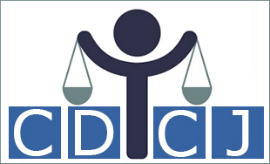Equal participation of women and men in all spheres of public and private life is a fundamental human right and a prerequisite for democracy, the rule of law and sustainable development.
Bearing this in mind, actions which are being implemented under the joint European Union and the Council of Europe programme “Horizontal Facility for the Western Balkans and Turkey 2019-2022” seek to ensure that women and men benefit from the activities implemented in line with the principles of gender equality.
To this end, a Gender mainstreaming analysis has been produced for the purpose of the action “Accountability and professionalism of the judicial system in Montenegro” (Montenegrin website) in order to identify the main challenges in mainstreaming gender equality in the judiciary and propose gender-responsive measures, outcomes and indicators to be incorporated in the implementation phase of the action. The Analysis has been prepared in close co-operation with the judicial authorities of Montenegro over the months of June - August and promoted during the online presentation held on 16 October.
The Analysis took note of the so-called feminisation of the judicial sector which has been on the rise in previous decades in several Council of Europe member states. However, although women constitute the majority of judges and prosecutors in Montenegro, men continue to dominate in the higher levels of the hierarchy. In order to overcome this challenge, it is recommended to introduce awareness raising and management skills training for the judiciary aimed at enabling women to apply for managerial positions and increase their chances to be elected.
Gender mainstreaming analysis - summary:



